Style Dimension: Ayana Zaire Is Using Her Brand To Study the Link Between Labor & Black Women
"I am not in the business of changing the 'black narrative,' nor do I want to be. I am simply adding to the conversation, chiming in with my two cents."
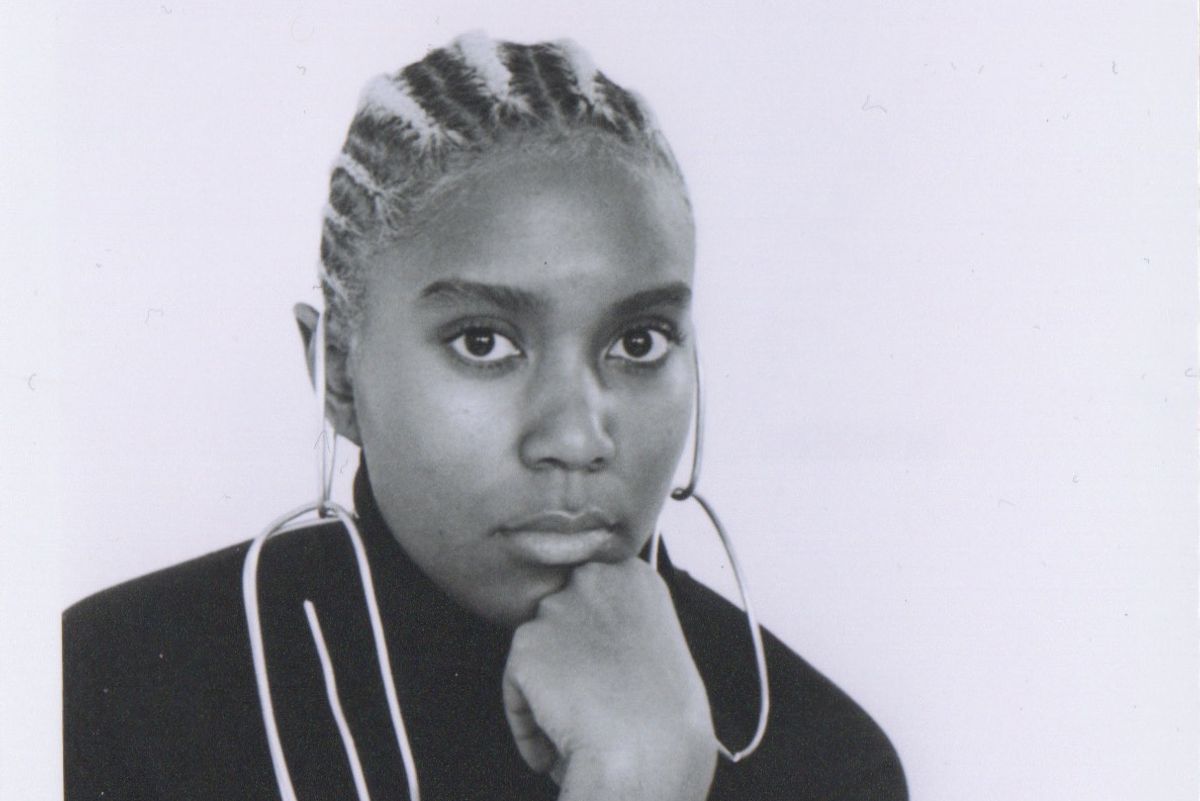
Style Dimension is OkayAfrica's seven-part series highlighting emerging designers from Africa and its diaspora. Along with giving you a glimpse of each designer's stunning work, this series is an introduction into their creative realm. In the seventh and last edition of the series, meet the mind behind Zaire Studio, Ayana Zaire.
While most people approach design primarily through an aesthetics standpoint, Ayana Zaire believes the core of style lies in researching and exploring the past to get a deeper understanding of the now. Born and raised in the DMV (D.C., Maryland and Virginia area), one of her biggest goals was to bring a unique creative energy to the city.
As the designer under her label Zaire Studio, she has done this through producing collections that focus on research on post-work societies and communication. Her original inspiration for the brand was wanting an experimental space and creative vessel to research, craft and publish her ideas seasonally. This led to her employer, who owned a shop in D.C. called Redeem, supporting her and allowing her to use the store as a launching pad to get people aware of her designs.
Her debut collection, Our Future, focused on workwear and its relationship with capitalism and the human condition. With Zaire's latest drop, her exploration of workwear continues though the POW-EROTICA collection that was inspired by the essay "Use of the Erotic: The Erotic as Power" by critically acclaimed poet, Audre Lorde. Using reconstructed menswear pieces like oxfords, suiting and outerwear; mixed with feminine staples like bodysuits and dancer uniforms, she seeks to create a harmony using both feminine and masculine styles.
I spoke with Ayana Zaire on her African-American heritage as inspiration and how she wants to shift the fashion landscape through her brand.
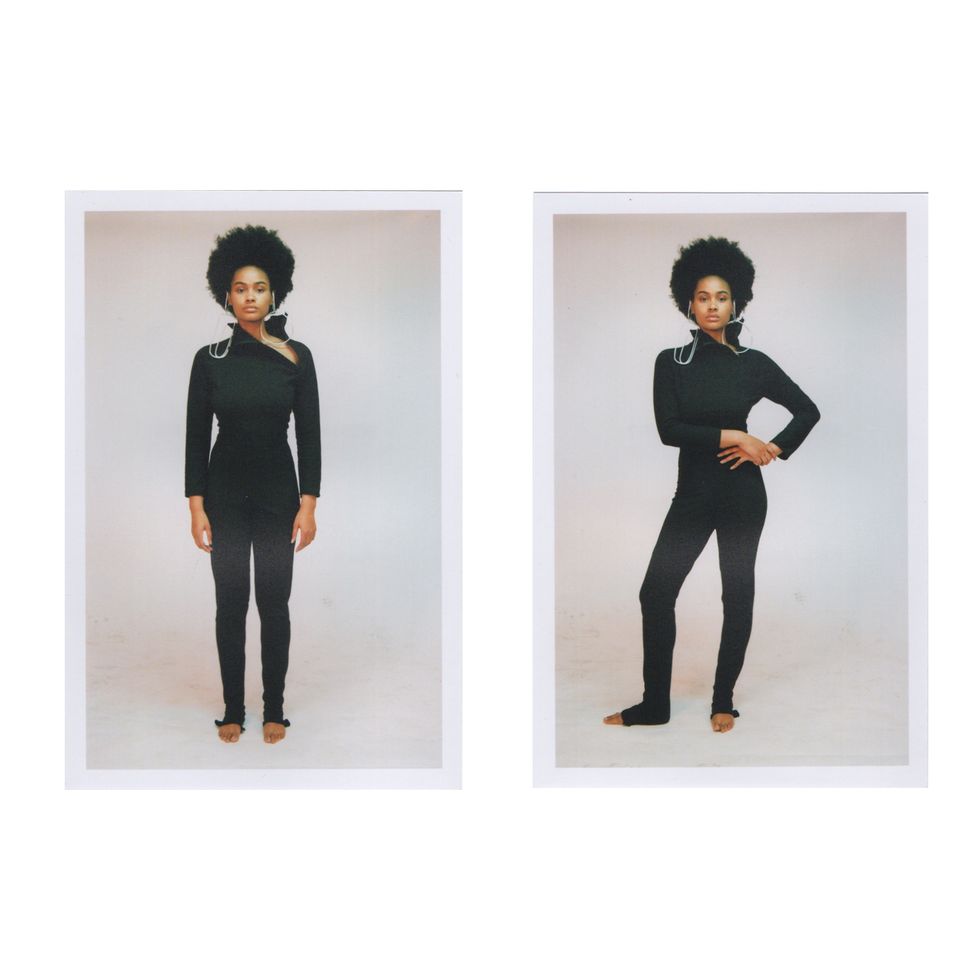
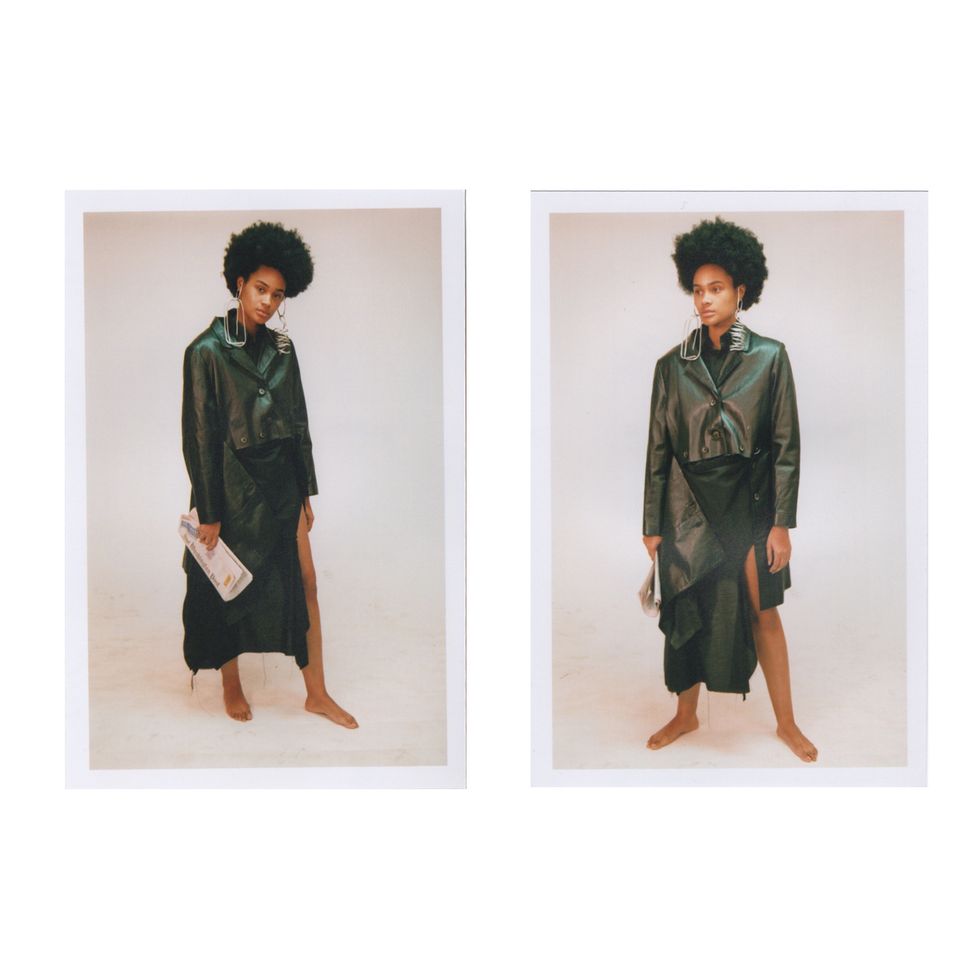
Amarachi Nwosu for OkayAfrica: How does your African/African-American heritage shape your approach to design?
Ayana Zaire: As a black woman I'm constantly pulling from visual references and feelings that have survived in my memories. My life experiences and identity shape my point of view and my point of view shapes the design—the story I want to tell through the garments. A social condition I believe uniquely impacts black women throughout history and today is work and labor. I have devoted my entire art, design, and research practices to labor studies. My references, choices of materials, creative direction, literature, etc. are all rooted in this investigation of the "politics of work."
I became obsessed with this subject during an artist residency in 2016, exploring the dynamics of labor in my life, the lives of the women in my family and the lives of my ancestors. Furthermore, I am also investigating how our relationship with labor is changing as technology is shifting us into a post-work society. As black folks we are futurists connected to the past and firmly rooted in the present, my approach to design is shaped by this reality.
What are your thoughts on the current landscape of the fashion industry in the U.S.? Do you think the industry is evolving quick enough for black creatives who want to build global brands?
The fashion industry is no longer relevant and we should be thinking of more holistic approaches to our design projects, brands, and experiments. For example, I am constantly thinking of ways I can incorporate practices such indie education, cooperative economics and open source technologies to strengthen community collaboration through this design project.
Imagining ways "fashion" brands can be built on top of and intertwined with architecture, politics, transition economics, agricultural innovation, technology, etc. is more relevant than the fashion industry itself. And I don't mean engaging with these social conditions as a capsule collection or fleeting campaign, I mean making one (or more) of these larger issues the foundation of the brand. Being in meaningful conversation with our communities' needs is more valuable, long-lasting, and sustainable than the industry and its pace.
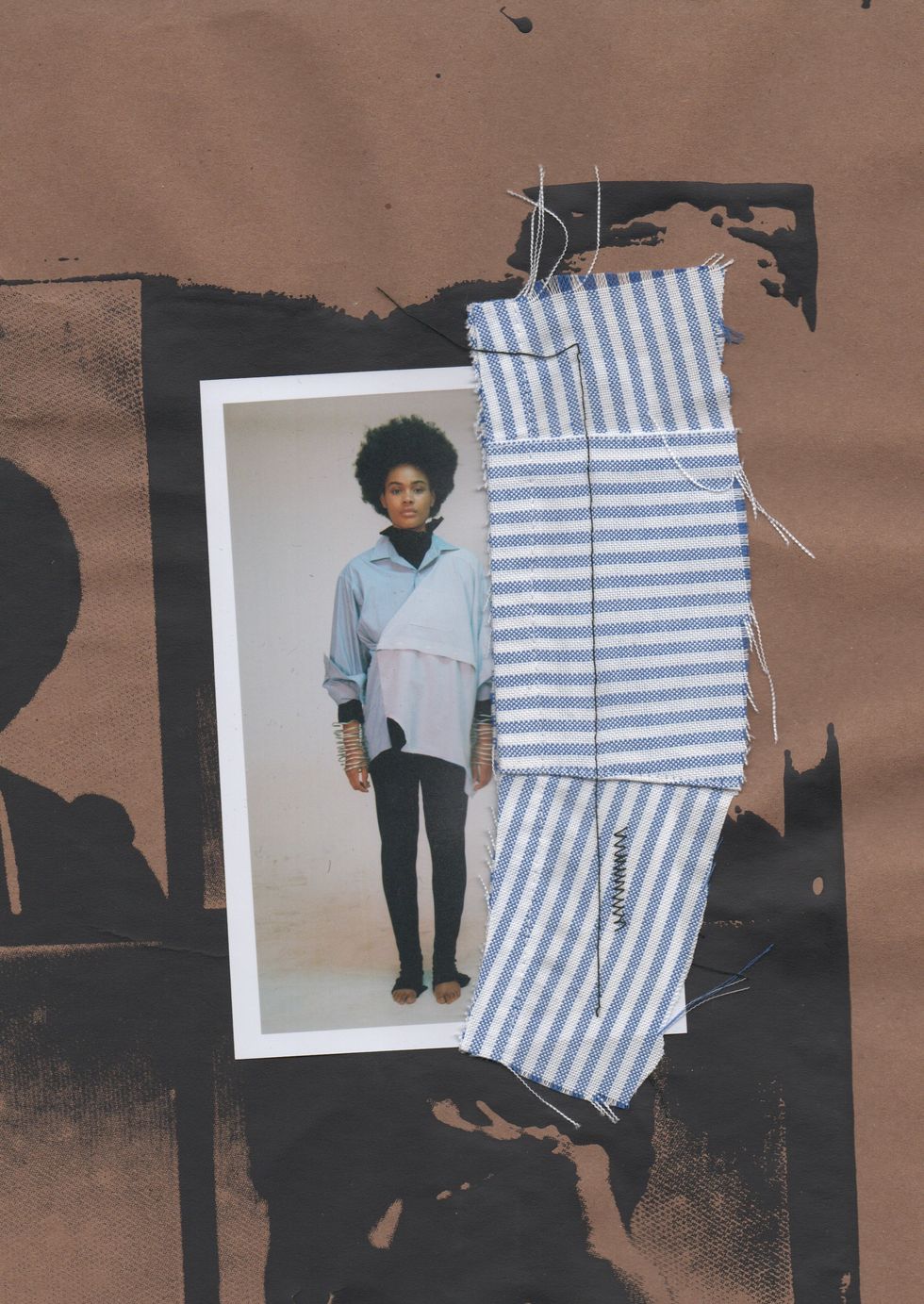
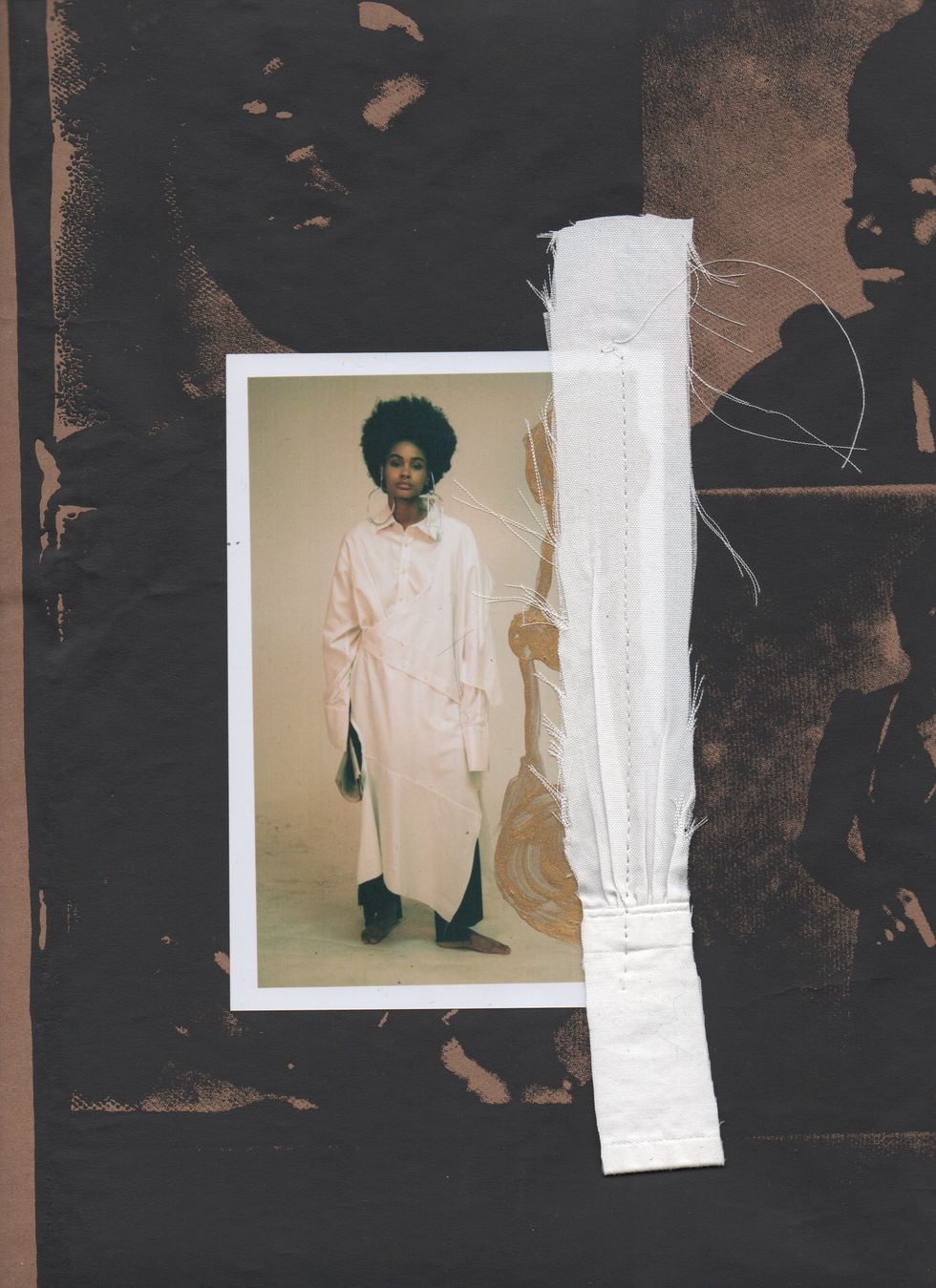
How are you actively trying to change norms or evolve the industry and black narrative through your brand?
I am not in the business of changing the "black narrative," nor do I want to be. I am simply adding to the conversation, chiming in with my two cents. I recently went to school for software engineering and have noticed how impactful open source projects are in the developer community. In conjunction with my research on labor studies, I have been looking at ways to actively weave technology and education into the brands' mission and how it shows up in the world.
Instead of fashion shows, possibly introduce ideas through workshops? Instead of me producing my own patterns for the garments, maybe I make the patterns open source and allow the public to learn through creating what they actually want to see? I am also interested in using the brand as a platform to advocate towards a lifestyle of leisure, being imaginative in ways we can use our time as we transition into a post-work society. I am in the process of a complete re-brand and shift within the Zaire Studio project, shifting from solely clothing to considering furniture, household objects, public spaces, and architecture for our post-work lives. Within the next year I am planning to shift the brand into more of a living, breathing facilitator of sorts.
What advice would you give to other young designers?
Model your brand after important social justice movements, not big businesses (there isn't enough time or money). In the way you are thoughtful about designing beautiful objects, be just as—if not more thoughtful—about how you design your brands' impact—the way it moves and lives in the world.
Keep up with Zaire Studio on Instagram.
*
Credits
Photography by Joilyn Jackson
Performance by Jade Nikaylah Williams
Art direction by Ayana Zaire Cotton
Garments by Zaire Studio

